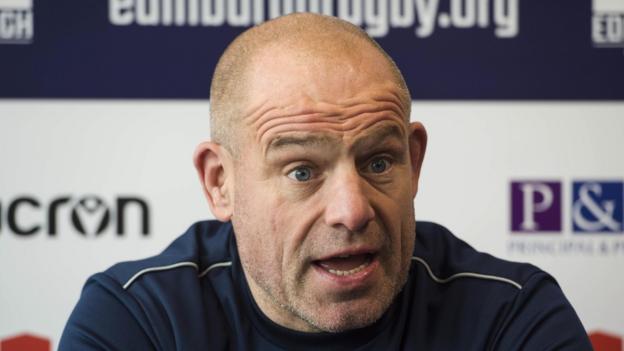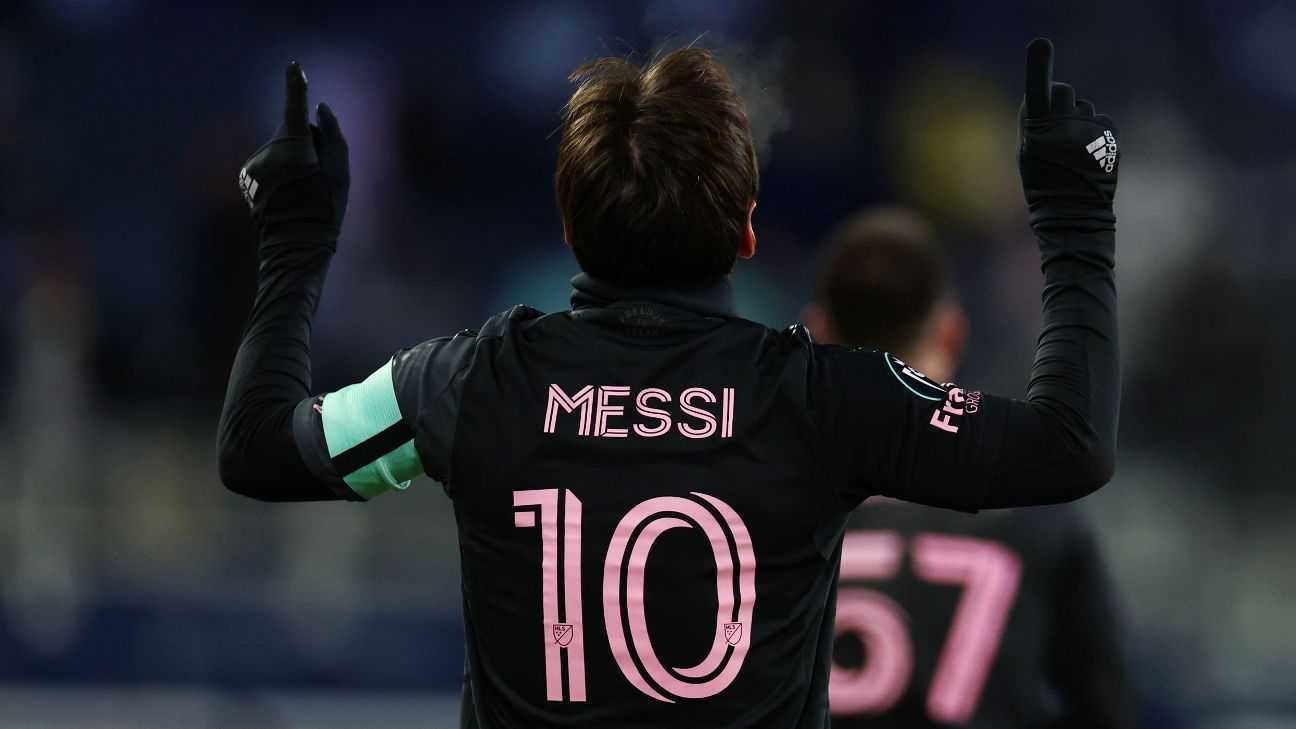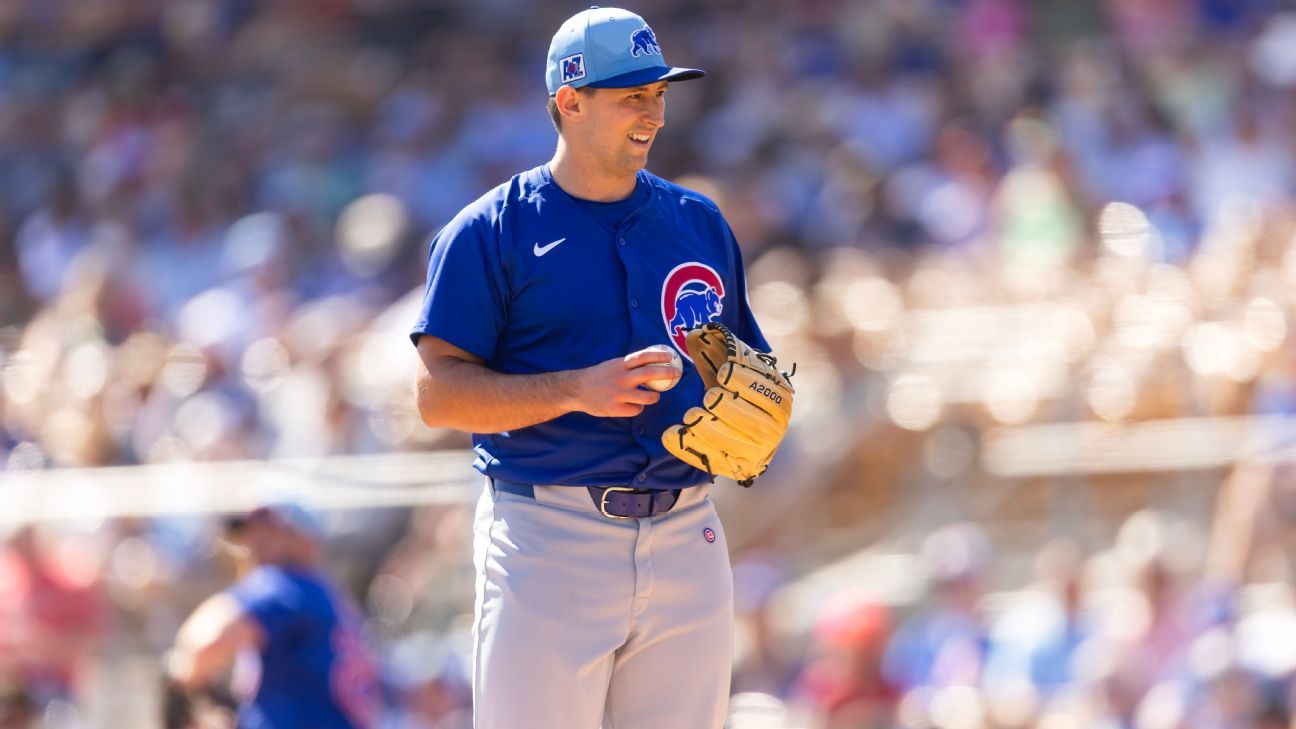
Having knocked them out in the quarter-final of the Pro14 in his first season before removing them at the same stage of the European Champions Cup in his second, it's probably fair that say that Munster are really beginning to get on Richard Cockerill's nerves.
He takes his Edinburgh team to Cork this weekend on the back of two of the most wounding losses in his time in Scotland - a six-point defeat in the former and a four-point loss in the latter.
"Against one of the great rugby powerhouses it frustrates the hell out of me that we could have, should have, been in a European semi-final last season, but we weren't and Munster were because that's what they do," he says.
"I hate losing more than I love winning. If I win I enjoy it for an hour and go home and watch the game and start working for next week. If I lose it sits with me until about Wednesday.
"Rugby coaching is a lifestyle, it's 24/7, 365. It's just an unbalanced life. There are jobs where you can clock in at nine and clock out at five and not think about your work after that - a means to an end. And there are other jobs where it lives with you every second of every day. Coaching is one of those."
Edinburgh have had a solid start to the season with four league wins from six and an away win and a home draw in their opening two games of the Challenge Cup. Season-on-season Cockerill's squad is getting better and deeper. He's got an exciting blend of gnarled pros and exuberant youth. There's a rugby rock star in there, too, in the shape of Bill Mata.
None of this has manifested itself in trophies, or even semi-finals, but the promise is there now more than before. This is a group that looks like it can take forward steps this season. Cockerill won't make bold predictions, but Edinburgh have the artillery to be a contender.
When you talk to Cockerill you're never quite sure where the conversation is going to go. That's the joy of him. He's brutally honest and fantastically mischievous. "It's small man syndrome," he says. "I'm a small man and I have a syndrome."
'The whole World Cup thing took its toll on Stu'
What he has as well is an innate understanding of rugby players. One player in particular crops up. Stuart McInally make his return to the fray this weekend having not been seen since the Japan game in Yokohama, a week when he lost his place in the starting line-up and lost the Scotland captaincy to boot.
Cockerill could empathise not just as McInally's club coach but as somebody who has a grasp of what the hooker might have been feeling in the wake of the World Cup disappointment.
"Some of it was physical, some of it was emotional," he says. "Being captain and then not being captain and all the things that come with it. He's been recharging his batteries not just after the season that's gone but for the season that's coming up. It's probably a season from hell a little bit because there's been the World Cup and the Six Nations is not far off, then there's the summer tour with the world champions [South Africa] to play twice and then New Zealand plus there's big club stuff in between.
"The whole World Cup thing took its toll on Stu. People don't see it, but living out of hotel rooms, moving location, doing press, leading a team - eventually it wears you down and I think that's probably where Stu was at. I can understand it. I got capped in 1997 and played 27 times for England in two-and-a-half years right up to the 1999 World Cup.
"At the end of the 1999 World Cup I was physically a bit weary but mentally I was just shot. Stu being such a good man wants to do the right thing by his club and sometimes the right thing is to go away and have a rest. He'll be much better for it."
It's odd to hear Cockerill referring to Scotland as "us" and "we" but that's the way he is. If he's in, he's in completely. When he watched the World Cup he was rooting for Gregor Townsend's team and, in particular, all the Edinburgh boys.
He's fond of saying that at the 2015 World Cup eight Edinburgh players saw action as opposed to 17 from Glasgow. This time around the split was 12-12.
That's reflective of the groundwork he's put in there, not just in developing Darcy Graham, Blair Kinghorn, Magnus Bradbury and Jamie Ritchie but also in rehabilitating McInally, Grant Gilchrist and Simon Berghan.
"Personally, I worry when I see quotes from players talking about winning the World Cup," he says. "If you're New Zealand or South Africa or England, fair enough. Maybe Stuart Hogg said it. ("Like everyone else we're going there to win...that's the target," the full-back said pre-tournament.) I love the ballsiness of it, but it's a big statement, isn't it? On what basis? We've never done it before.
"If one of my players said we're going to win the Pro14 or Europe I would bring them in the office and say, 'Mate, you're killing us there'. I just like being a realist because being a realist means you don't give any false hope."
'We've improved players here'
If you were doing an audit of Cockerill's work at Edinburgh you'd have to begin with the mess he inherited back in the summer of 2017. Demoralised, disorganised, undisciplined, the entire operation needed work. The coach is a very direct talker, but this was a job that required a whole lot more than straight shooting. It required energy and subtlety and attention to detail.
"We needed to divide the wheat from the chaff," he explains. He appointed Bradbury as captain and then had to demote him because of disciplinary problems. In the rebuilding of Bradbury's career we can see Cockerill at his best. That work is nowhere near done. Not even close.
"Jamie Ritchie had a very good World Cup but the acid test for Jamie is backing it up week after week like the really top players do," says Cockerill. "We have to get him better, because we can. Magnus, the same. Darcy, the same. We've improved players here. It's not always been a straight journey, but that's how we learn.
"Gilco, Stu, Bill Mata. Luke Crosbie was a skinny fat man who came in from the academy. Skinny upper-body, pot belly, little skinny legs. Now he's outstanding. Jamie Bhatti? Glasgow didn't want him. We'll have him. Mark Bennett? Glasgow didn't want him. They had Huw Jones. We'll have Mark.
"In improving players we're just doing what Glasgow have done for seven or eight years but when you've been so far ahead nobody likes it when the other one starts to catch up. The old order doesn't exist anymore."
Cockerill is revisiting his rivalry with Glasgow there. When he was first appointed he went out of his way to noise up the Scotstoun crew if only to galvanise his own players and the Edinburgh support. It worked, to a point. Edinburgh have had the better of the head-to-head, but Glasgow made the Pro14 final last year while Cockerill's team, now having to deal with more players leaving for international duty, didn't make the play-offs.
His Glasgow sparring partner, Dave Rennie, is leaving for Australia at the end of the season. Has Cockerill had any offers himself? "No, but there will be if you look," he says. "I haven't looked. If you are coming out of contract (as Rennie is) then opportunities arise. I'm invested in what I'm doing here.
"Players would know if I wasn't. It's human nature that if somebody's not my boss next year then I don't really have to worry about him, I have to worry about the next bloke coming in. How will that work at Glasgow? It's not for me to comment, but Dave is a smart bloke. We get on pretty well. I've enjoyed the jousts.
"That's where we were at the club at the time. We needed to stick a stake in the ground and say, 'This is us and if you don't like it - tough'. Like I say, it's small man syndrome."
A small man with some big weeks and months ahead.















 Phone: (800) 737. 6040
Phone: (800) 737. 6040 Fax: (800) 825 5558
Fax: (800) 825 5558 Website:
Website:  Email:
Email: 






